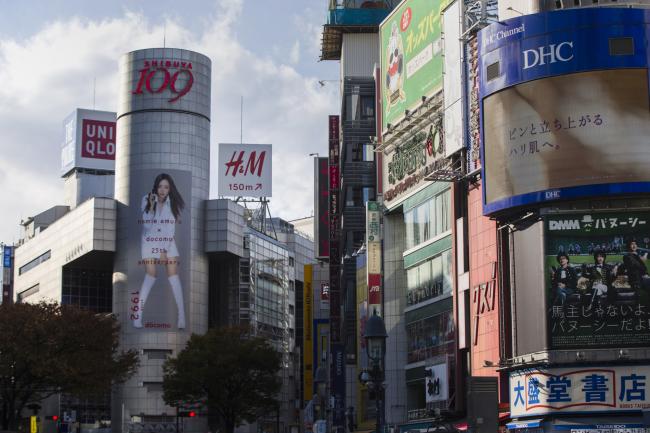(Bloomberg) -- China’s slowdown has likely tipped Japan’s economy into recession, though not by enough to justify delaying a sales tax hike, according to the head of a government committee that charts the economic cycle.
The possibility is rising that the economy is already in a recessionary phase, said Hiroshi Yoshikawa, who is also president of Rissho University, in an interview Tuesday. A key index of economic data recently showed the economy was worsening, making an official judgment of a recession highly likely, he said.
“We shouldn’t confuse a serious recession like the one following the Lehman crisis and a regular recessionary phase,” said Yoshikawa, whose panel delves through a wide swath of data to make the final call on the peaks and troughs of Japan’s economic cycle.
The strength of Japan’s economy is likely to be one of the key considerations for Prime Minister Shinzo Abe should he choose to postpone for a third time a sales tax hike currently scheduled for October. Abe has repeatedly said the increase will go ahead bar a crisis on the scale of the global financial meltdown that followed the Lehman Brothers collapse. That is a justification Abe has used before to postpone the tax previously.
Yoshikawa’s comments come amid conflicting signs over the health of the economy. First quarter growth figures expected to show a contraction showed the economy grew. A government economic report acknowledged ongoing weakness in exports and output, but said the economy was still recovering moderately. Both developments have cooled speculation that Abe will postpone the tax hike.
What to Watch for Signs Abe’s Reversing on Japan Sales Tax Hike
Even if the economy is likely in recession, as Yoshikawa believes, he said the nation needed the sales tax to go ahead, citing burgeoning social security costs as the biggest factor putting pressure on Japan’s debts. He also cited the need to have the nation’s finances in order to cope with natural disasters, including the possibility of a hugely damaging earthquake hitting the Tokyo region.
Just because government bonds are largely held by Japanese and the BOJ is buying them up doesn’t simply mean interest rates will never go up, he says. "You can’t simply say a day of reckoning for Japan’s finances will never come," Yoshikawa said.
